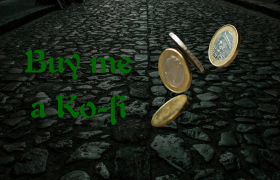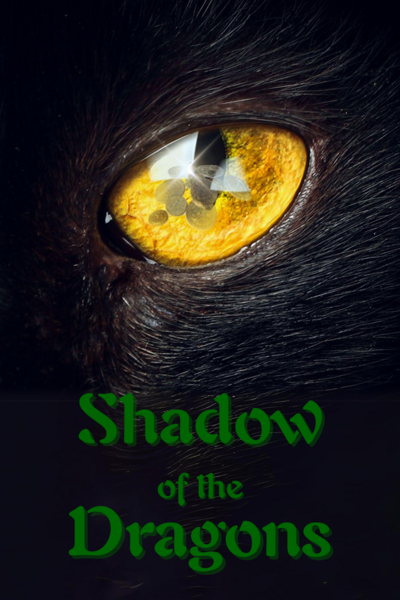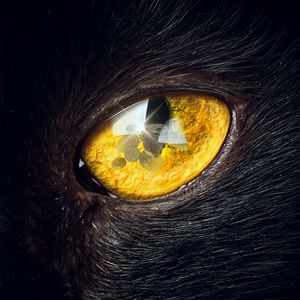Not Heroes
Oct 14, 2024
Despite everyone’s dire warnings, the next several days proved uneventful. No assassins appeared, and no one was giving the Dragons more trouble than usual. At first, Ishtal remained wary and tense, startling at every anomaly in the corner of her vision, despite the fact that Kosef had remained true to his word and was now accompanying her on her pickpocketing shifts.
A few days after the incident, they were setting out for a minor street fair that she’d been assigned. Per the arrangement they’d been following, he would linger, apparently idle, on the periphery while she worked her way back and forth through the crowds. If anyone approached her with ill intent, he would, in theory, stop them before she got hurt. They had yet to actually test this plan, and while she certainly didn’t want to be in outright danger, the current uncertainty had Ishtal torn between doubt that he could actually do anything should a situation arise, and guilt that she had caused him to get stuck with her instead of doing anything else more important.
Something metallic flashed in her peripheral vision, moving abruptly, and Ishtal’s hackles stood on end; she leaped aside instinctively and slammed hard into Kosef, who was walking just a bit closer to her than she’d expected. Her elbow barked painfully against the hilt of a knife in his belt, and she felt him wince where her shoulder had hit him. Frantically, she looked around, trying to see where the threat was coming from—and spotted a tinker hauling a load of highly polished pots and pans, who had just passed by them. She must have mistaken the light hitting them for the gleam of a blade.
She edged away from Kosef, unable to look directly at him. “Sorry about that. I just—”
“—startled, it’s fine,” he said, with something that might have been gentleness. “You’re stressed; anybody would be under the circumstances. You’ve just come to a new place to start your whole life over, and just as you think you finally understand the rules, you find out that now someone’s after your head and the rules have changed again. None of that’s something to be ashamed of.”
Which was surprisingly insightful, coming from someone whom she hadn’t thought would have paid all that much attention to her until recently, but Ishtal set that aside for the moment to mutter, “I should be better than this, though. I trained my whole life to be someone who protects people, not someone who needs to be protected.”
“If it’s any comfort,” Kosef offered, “the jumpiness makes my job easier than if you were determined to rush off half-cocked. Training or no training, you’re my responsibility for the time being, and you exhibiting some healthy caution is a help, not a hindrance.
It wasn’t terribly comforting, but since the Kraken assassins remained absent throughout the rest of the day, Ishtal supposed it was a moot point.
Days passed, peril still failed to materialize, and Ishtal continued to be hyper-aware of strangers carrying weapons in her vicinity. While this didn’t lead to her preemptively spotting any Kraken assassins, she did start to notice a different kind of heavily armed individuals who, once she was paying attention, seemed to be everywhere. They were a mix of almost every known People, typically dressed for traveling, at least partially armored, and carrying the widest variety of weapons she’d ever seen. As far as she could tell, they were all passing through in ones and twos on their way to different places.
She finally asked Marcienette about them, one evening at the Salamander. They were by themselves off in a corner, so there was no one else to witness Marcienette’s sudden, violent snort of derision.
“You mean the adventurers, right?” she said afterward. “Or heroes, or knights-errant, or whatever they call themselves. Yeah, they’re idiots.”
Ishtal frowned. “How do you mean?”
“They’re just so…” Marcienette gestured expansively at nothing in particular. “Some of them are pretty much just mercenaries with fancy titles. But most of them are noble, righteous fools who really think that they can make the world a better place by roaming around with their sword and their earnest desire to help people.”
“What’s wrong with that?” Ishtal thought that if she’d left Bosgarren Herria with more supplies, she might have considered such a life herself, once she learned about it.
“They never stay anywhere long enough to actually make a real contribution to society. They save a person here, a family there, but those people still have to go home to their mundane, long-term problems, which an adventurer can’t do anything about. A hero can deal with the mysterious shadow in your woods or the gang of bandits that’s moved in, but he can’t do anything about your neighbor trying to start a feud with you, or about the mayor taxing your life away.”
“And you can?” Ishtal asked skeptically.
Marcienette shook her head, shrugging. “Not me personally, not for the big stuff—which is another thing, that kind tends to think they have to do it all themselves, or maybe with one or two friends. I’m happy to just facilitate; Trip and Akiba are doing the real work around here.”
“By running a criminal gang,” Ishtal said, dubious.
Marcienette shot her a funny look. “By making this part of the city one of the best and safest places for non-humans to live in human territory. You got incredibly lucky, coming to Lozhapad out of everywhere else you could’ve gone, and then running into Trip and Kosef. I’ve been around to a few different places, and any other major city within a week’s travel of here, you might not have made it. I hate to say it about my own People, but the less human you look, the less able you are to find honest work, and most organized crime doesn’t have Akiba’s particular sense of fair play—let alone someone like Trip who, somehow, genuinely has everyone’s best interests at heart.”
Well, that answered one question that had been plaguing her, at least—she might still not know why the Dragons were so kind overall, but at least they were an exception and she wouldn’t have to wrestle with revising everything she knew about ilegabeak in general.
Still, she felt compelled to insist, “I don’t see anything wrong with what the adventurers do, though. They don’t have to fix everything to still do some good.”
“We’re just going to have to agree to disagree,” Marcienette muttered.
Ishtal was still trying to wrestle with what Marcienette had said a few evenings later, as she made her way back from a pickpocketing shift, with Kosef his usual quiet, solid presence at her right. They were walking down an alley, without any other pedestrians nearby to overhear, so on a whim, she turned to him and asked, “Why didn’t you become an adventurer, or a wandering hero or whatever you call it? You can fight, and you seem like a decent person, so…why would you choose to work with criminals?”
Kosef snorted, giving her a sideways look. “I’m flattered, I think, by your assessment of my decency. But when I was starting out, I needed money, and no matter what anyone tells you, the hero business doesn’t pay all that well or steadily for most people. At this point, money’s less of an issue and I could make a new start if I really wanted to—but I don’t.”
“Why not?” Her initial theory had been that he worked for the Dragons because he just liked lawless violence, but that didn’t seem to match with what she’d seen of him more recently.
He hummed for a moment, as if thinking how to phrase his answer. “Traveling heroes,” he said finally, gesturing broadly, “have to care about everyone everywhere, or else no one. You can’t live that kind of rootless life, always risking yourself, without choosing one or the other. I couldn’t do that. I’d rather choose a specific group of people to care about, and focus on protecting them. And despite what you’re probably thinking, the Dragons aren’t such a bad choice of people to care for. I certainly think it’s a worthier task to help protect them than to criss-cross the world chasing fame and—”
Abruptly, he cut off, and several things happened at once. Ishtal registered, just barely, light footsteps trotting along the roof to her left, the steps of someone stealthier but also taller than Lilah. She and Kosef froze in their tracks at the same time, and the footsteps stopped barely seconds later. Kosef let slip a muttered, “Ah, krysy”—and then caught hold of her right wrist in his left hand and swept her behind him in one powerful motion. She opened her mouth to protest, but before she could even form the words, she heard a tiny thud of something striking the packed dirt of the alley.
A glance around Kosef’s shoulder revealed a small, gleaming throwing knife embedded in the ground. If he hadn’t moved her, it would have lodged in her skull instead.
She was still processing this when Kosef called out, with what seemed like unwarranted confidence, “I know you’re there, Plygiant! Really, a hit and run? I didn’t think you were that much of a coward yet.”
A figure detached itself from the shadows along the nearest rooftop, sidling down the shingles on nearly soundless feet and dropping gracefully to the ground. It was, Ishtal realized, an elf, the first one she’d seen up close since arriving in Lozhapad. He was clad almost entirely in black leather armor with Kraken-blue accents, but his hair was as golden as autumn light and his skin had the warm tones of fresh-baked bread. He was, just as the Onena guardians’ research on elves suggested, beautiful in a way that defied any one People’s aesthetic standards—or rather, he would have been, were it not for something about his eyes, and the smile like a predator’s bared teeth, that suggested a sheet of glass with cracks running through it.
“Nemetsk!” he greeted cheerfully. It took Ishtal a moment to realize that this was probably Kosef’s surname. “There’s no call to be rude. I was only trying to make both our jobs easier.”
“My job,” Kosef said tightly, “is keeping her alive. Since it seems your job is to kill her, I don’t really see a way for us to both have a good time of it here.”
Plygiant shrugged, gesturing with his left hand in a what-can-you-do sort of way. His right hand stayed behind his back. “You can’t be that invested in whether she lives or dies. Has she even been in your little gang for two whole months? Just walk on a bit, you can tell your boss you couldn’t do anything about it, and we don’t have to waste our time and energy on a fight.”
“Or you could walk away,” Kosef pointed out, in what would have passed for a casual manner if Ishtal hadn’t been pressed against the tensed muscles of his back. “I find it very difficult to believe that you care about wrapping up this assignment in a timely fashion much more than you’d care how you take your eggs in the morning.”
“I’m more particular about that than you would think, actually.” Plygiant moved a subtle step closer. “More to the point, my Lady isn’t a mood to let me stall on this one. She’s been insulted. This isn’t negotiable.”
Kosef didn’t move.
A moment later, Plygiant did, like lightning, his right hand revealed to have a dagger waiting in it. Kosef sprang into action barely a blink afterward, moving faster than Ishtal would have expected for his muscle mass. He had a long knife in each hand where no knives had been before, and he and Plygiant clashed in the middle of the alley, trading and blocking blows almost faster than Ishtal could follow. Neither of them seemed to be doing each other serious injury; possibly this was because only Kosef was seeking to outright incapacitate, while Plygiant, ever so slightly faster and dirtier of a fighter, was only trying to get past.
Get past to her, Ishtal realized, while she stood there waiting for it like a useless maiden from Father’s cautionary tales about the perils of skipping out on training. What did it matter if it was her job or not? She wasn’t going to just stand there and be defended when it was her the elf had come to kill.
Assessing the situation, she drew the knife at her hip and waited for an opening. When it came, she sprang, caught the edge of the roof, hauled herself up, rolled, and dropped down behind Plygiant, striking out at the shoulder joint of his armor even as she landed in a crouch.
The blow didn’t land—he half-turned and caught the blade, not seeming to care that it sliced through his thin leather glove and into his palm, sending a trickle of blood down his wrist. The knife almost wrenched out of her hand, and Ishtal thought that perhaps this hadn’t been such a good idea after all—
—and then Kosef seized the advantage afforded by Plygiant’s brief distraction and dealt him a sharp crack across the temple with the butt of one of his knives.
Plygiant stumbled back, and Ishtal barely ducked out of the way as he half-collapsed against a wall. Kosef caught hold of her again, not pulling her behind him this time, but beside him as he ran for the end of the alley. It spat them out onto a more frequented street, and a couple of turns later, they were in a busy thoroughfare—not quite crowded enough for pickpocketing, voluntary or otherwise, but still with plenty of people going to and fro, even at this late hour.
“He won’t try anything in a more public area like this. He’s not stupid,” Kosef muttered. “But he’s not going to be very happy with either of us after a humiliation like that, either. The next time he shows up, it’s going to get nasty.”
“And tonight wasn’t?”
“Tonight was strictly business.” Kosef glanced sideways at her. “Are you all right?”
Ishtal opened her mouth to say that she was, then shivered, the shock beginning to sink in. “He was going to kill me.”
“Yes.”
“You stopped him.” She frowned. “You didn’t even use that giant sword you’re always hauling around.”
Kosef huffed something that might have been a laugh. “The sword is mostly for intimidation purposes; it would’ve been worse than useless in that kind of tight space. Unfortunately, Plygiant knows that.” He looked at her again, more appraisingly. “And I was stalling him at best—I expected you to run, with the idea that once you were out of reach, he’d call things off for the night. But what you ended up doing worked pretty well, too.”
“Thanks.”
They walked in silence for a stretch of minutes, the background hum of city noise washing around them, before Ishtal ventured, “And, um, thanks for stalling him, too. He was right, you could’ve just walked away and told Mr. Trippingly and Madam Akiba that there was nothing you could do.”
Kosef was quiet a moment, then said only, “No, I couldn’t have.”
Ishtal couldn’t think of anything more to say to that.
Recommendation for you
Shadow of the Dragons
1.4k views64 subscribers
Ishtal is sure her life is as good as over when her village banishes her.
All her life, she's believed that her people, the catlike Onena, would never be welcome outside of the small territory where they've isolated themselves. But when the involuntary kleptomania that's haunted her for years finally goes too far, she's given no choice but to leave and make her way in the world.
The good news? There is a place for her, with the Green Dragon Gang and their motley members who take her in with open arms. The bad news? A run-in with a rival gang ends up making Ishtal a target, and could put her new friends at risk. She's going to have to dodge assassins and the city watch, navigate the chaos of a city that's never truly peaceful, and (maybe) manage to control her wandering fingers if she's going to land on her feet.
Read on for found family, slow-burn interspecies romance, and criminal hijinks!
All her life, she's believed that her people, the catlike Onena, would never be welcome outside of the small territory where they've isolated themselves. But when the involuntary kleptomania that's haunted her for years finally goes too far, she's given no choice but to leave and make her way in the world.
The good news? There is a place for her, with the Green Dragon Gang and their motley members who take her in with open arms. The bad news? A run-in with a rival gang ends up making Ishtal a target, and could put her new friends at risk. She's going to have to dodge assassins and the city watch, navigate the chaos of a city that's never truly peaceful, and (maybe) manage to control her wandering fingers if she's going to land on her feet.
Read on for found family, slow-burn interspecies romance, and criminal hijinks!












Comments (0)
See all